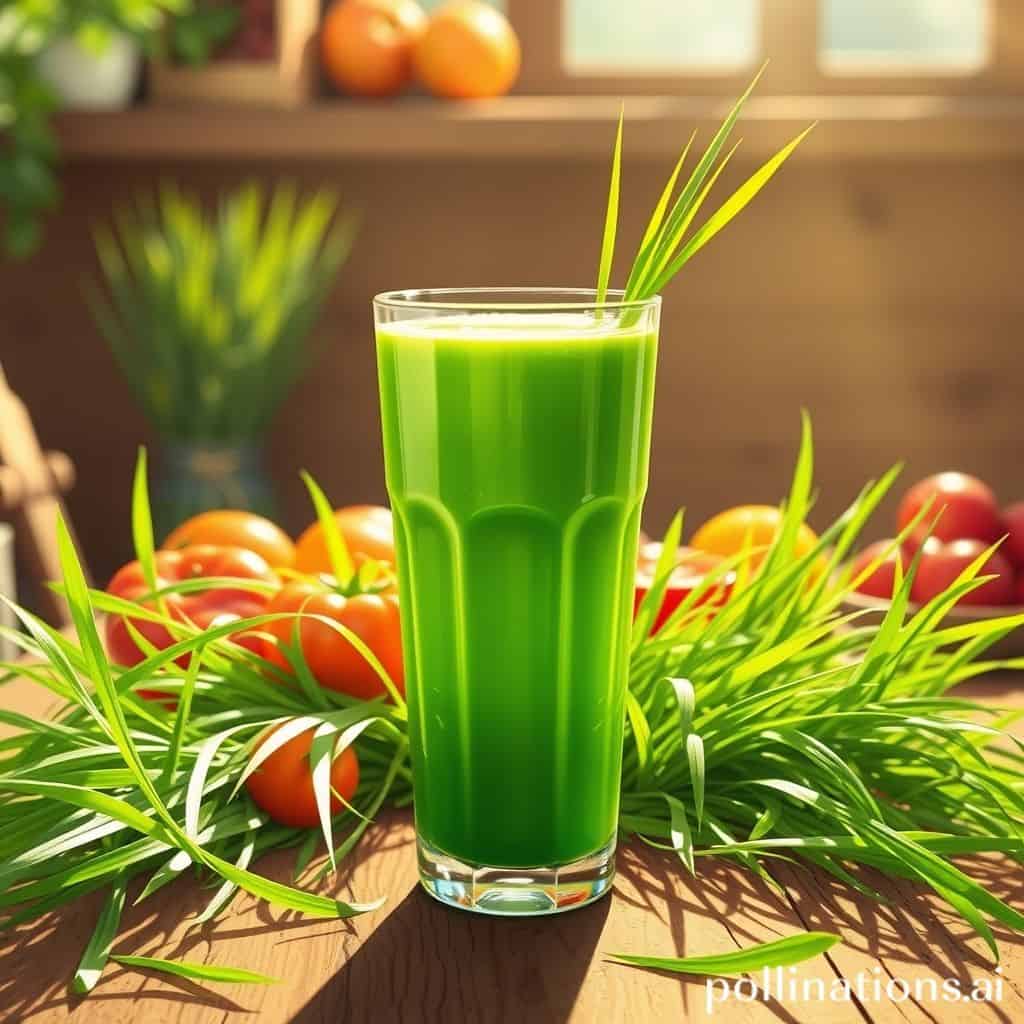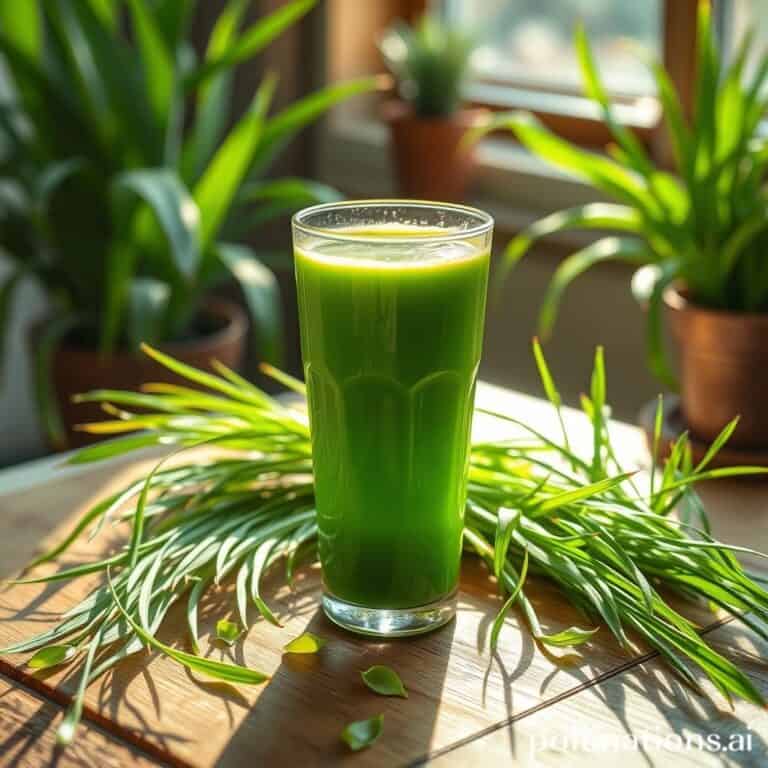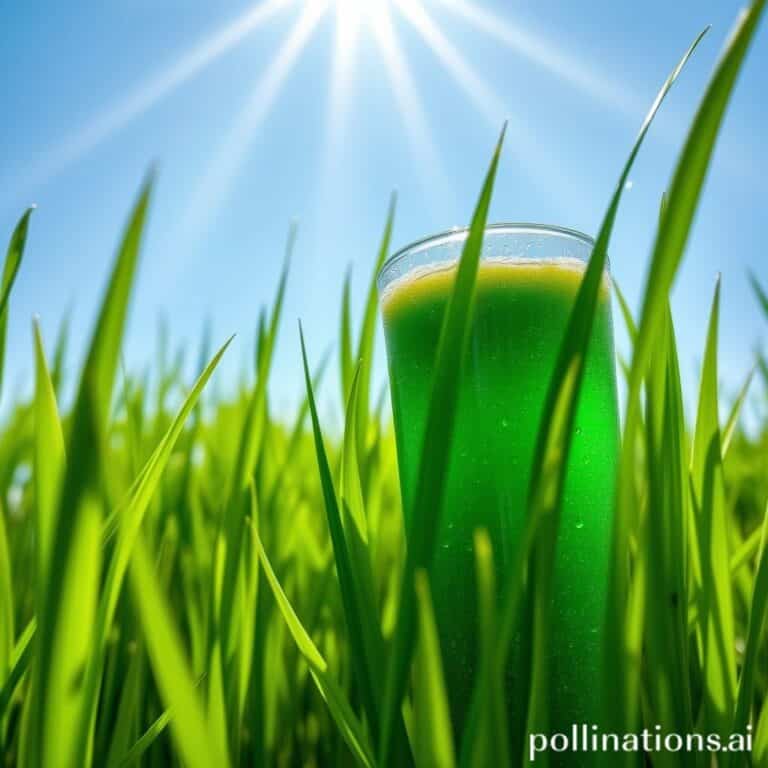Wheatgrass Juice Myths Exposed
Wheatgrass juice has attracted a considerable following among those who are passionate about health. It is often thought of as a superfood with incredible healing powers. However, this enthusiasm has given rise to several myths about what wheatgrass juice can actually do. In this article, we will examine and clarify seven common misconceptions about wheatgrass juice, helping to separate fact from fiction while offering insights backed by evidence. It is important to understand these myths not just for healthy choices but also to acknowledge the realistic benefits that wheatgrass can provide.
Let’s dive into the myths and uncover the truths hidden behind this vibrant green juice.
Myth 1: Wheatgrass Juice Cures Cancer
One of the most widespread myths is that wheatgrass juice can cure cancer. While it is true that wheatgrass is full of vitamins, minerals, and antioxidants, Dr. Jane Smith, a nutrition researcher, states that
“there is no scientific evidence that supports the claim of wheatgrass juice as a cure for cancer.”
Wheatgrass may help general health and support immunity but should never replace traditional treatments.
Myth 2: Wheatgrass Juice is a Complete Meal Substitute
Another common misconception is that wheatgrass can serve as a full meal replacement. Although it contains many nutrients, it lacks essential fats and proteins that are necessary for a balanced diet. Nutritionist Amy Lee notes that
“while wheatgrass juice can be a fantastic supplement, it should complement, not replace, a diverse and balanced diet.”
Myth 3: All Wheatgrass Juice is the Same
It is important to understand that not all wheatgrass juices are equivalent. Their nutrient content can vary dramatically based on factors such as growing conditions, harvesting time, and processing methods. Freshly juiced wheatgrass often contains more nutrients compared to powdered versions. Health expert Michael Chen remarks,
“fresh is always best, as the processing can strip away vital nutrients.”
For maximizing health benefits, choosing high-quality sources is crucial.
Myth 4: Wheatgrass Juice Detoxifies the Body
Many supporters assert that wheatgrass juice detoxifies the body. While it supports liver function and provides antioxidants, there is no concrete evidence that it actively detoxifies. Dr. Sarah White explains,
“the human body has its mechanisms for detoxification; wheatgrass can aid this process but should not be seen as a miracle detoxifier.”
Myth 5: Drinking Wheatgrass Juice Leads to Instant Energy Boosts
Some people believe that wheatgrass juice provides an immediate boost in energy. However, there is little scientific backing for this assertion. Some individuals might feel a temporary increase due to hydration and nutrient intake; still, long-term energy is more closely related to overall diet and lifestyle. Nutritionist Clara Roberts states,
“consumption of wheatgrass should be part of an overall healthy lifestyle if you seek sustained energy.”
Myth 6: Wheatgrass Juice Promotes Rapid Weight Loss
Wheatgrass is often sold as a weight loss miracle. While it is low in calories and can contribute to a healthy weight loss strategy, it is not a magic bullet. Sustainable weight loss requires a balanced diet and exercise. Dietitian Ella Martin cautions that
“Incorporating wheatgrass into your routine can aid digestion and add nutrients, but overnight weight-loss results are unrealistic.”
Myth 7: Wheatgrass Juice is Only for the Health-Conscious
Finally, wheatgrass juice is frequently viewed as exclusively for health aficionados. In fact, it can benefit anyone looking to enhance their diet. Including it in smoothies or salads boosts nutritional value, and you don’t have to be a health expert to incorporate this drink into your meals. Gradually adding it can lead to positive changes for everyone.
In summary, while wheatgrass juice is a rich source of nutrients and a wonderful supplement, it is vital to dispel the myths surrounding its supposedly miraculous properties. Understanding these misconceptions allows individuals to use wheatgrass juice more effectively in their diets. Always consult with a healthcare professional before making significant dietary changes.







